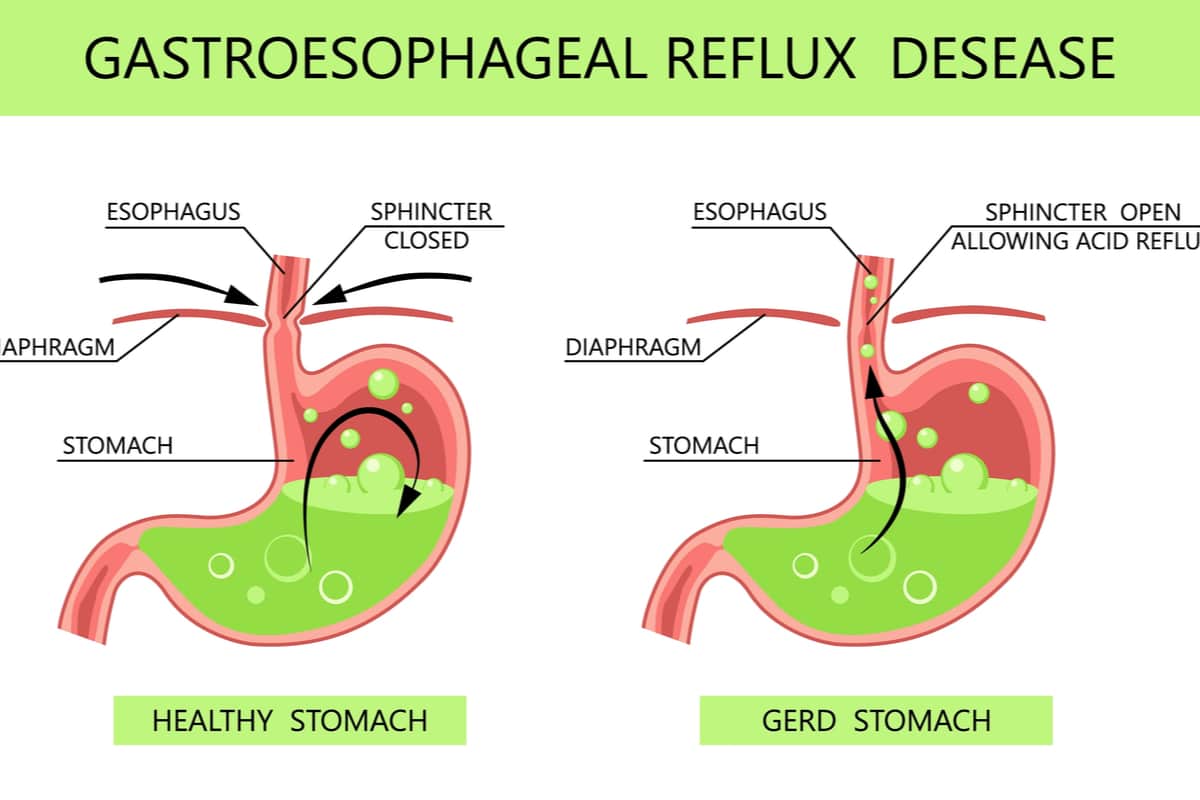Gastroesophageal Reflux Disease (GERD)
Overview Gastroesophageal reflux disease (GERD) occurs when stomach acid repeatedly flows back into the tube connecting your mouth and stomach (esophagus). This backwash, known as acid reflux, can irritate the lining of your esophagus.
While many people experience occasional acid reflux, persistent and recurrent acid reflux can lead to GERD.
Most individuals can manage GERD discomfort through lifestyle changes and medications. In rare cases, surgical intervention may be necessary to alleviate symptoms.
Symptoms Common signs and symptoms of GERD include:
- Heartburn: A burning sensation in your chest, typically occurring after eating. It may worsen at night or while lying down.
- Regurgitation: Backwash of food or sour liquid.
- Upper Abdominal or Chest Pain
- Dysphagia: Trouble swallowing.
- Feeling of a Lump in Your Throat
Nighttime acid reflux may also lead to:
- Persistent Cough
- Laryngitis: Inflammation of the vocal cords.
- New or Worsening Asthma
When to Seek Medical Attention If you experience chest pain, especially accompanied by shortness of breath, jaw pain, or arm pain, seek immediate medical care. These symptoms could indicate a heart attack.
Make an appointment with your doctor if you:
- Experience severe or frequent GERD symptoms.
- Use over-the-counter heartburn medications more than twice a week.
Causes GERD results from frequent acid reflux or the backflow of nonacidic stomach contents.
When you swallow, a circular muscle band around the bottom of your esophagus (lower esophageal sphincter) relaxes to allow food and liquid into your stomach. The sphincter then closes to prevent reflux.
If the sphincter fails to relax properly or weakens, stomach acid can flow back into the esophagus. This persistent acid backwash irritates the esophageal lining, often leading to inflammation.
Risk Factors Conditions that increase the risk of GERD include:
- Obesity
- Hiatal Hernia: Bulging of the stomach above the diaphragm.
- Pregnancy
- Connective Tissue Disorders (e.g., Scleroderma)
- Delayed Stomach Emptying
Factors that exacerbate acid reflux include:
- Smoking
- Consuming Large Meals or Eating Late at Night
- Certain Trigger Foods (e.g., Fatty or Fried Foods)
- Drinking Alcohol or Coffee
- Taking Specific Medications (e.g., Aspirin)
Complications Chronic esophageal inflammation due to GERD can lead to:
- Esophagitis: Inflammation, bleeding, and sometimes ulcers in the esophageal tissue.
- Esophageal Stricture: Narrowing of the esophagus due to scar tissue from stomach acid damage.
- Barrett Esophagus: Precancerous changes in the tissue lining the lower esophagus, associated with an increased risk of esophageal cancer.
I hope this revised version provides a clearer understanding of GERD. If you have any further requests or need additional information, feel free to ask! 😊


